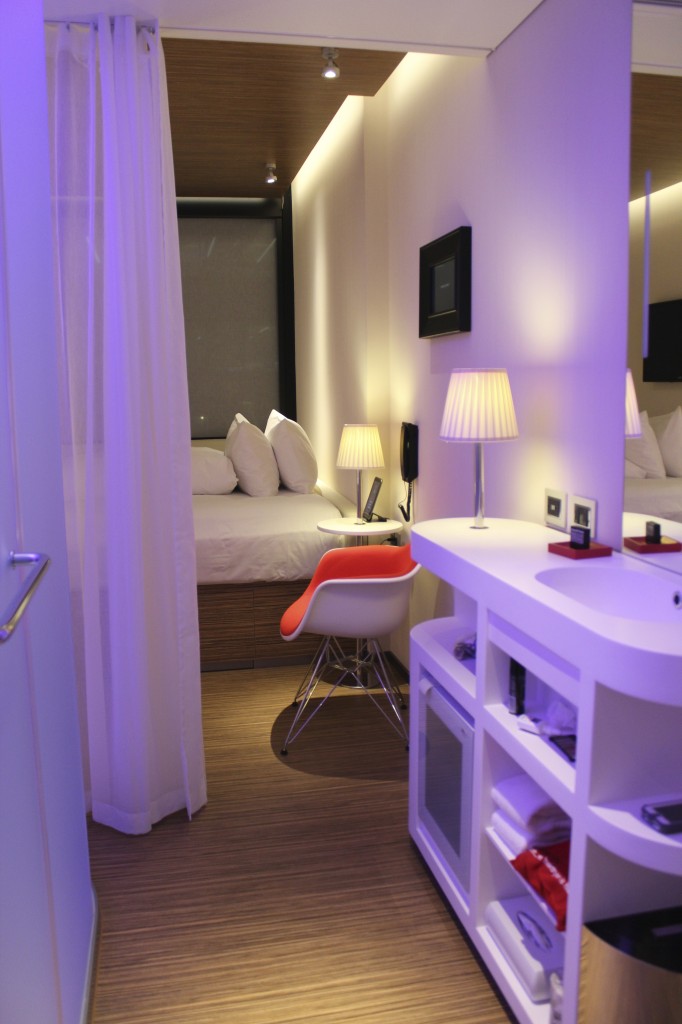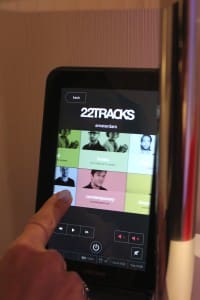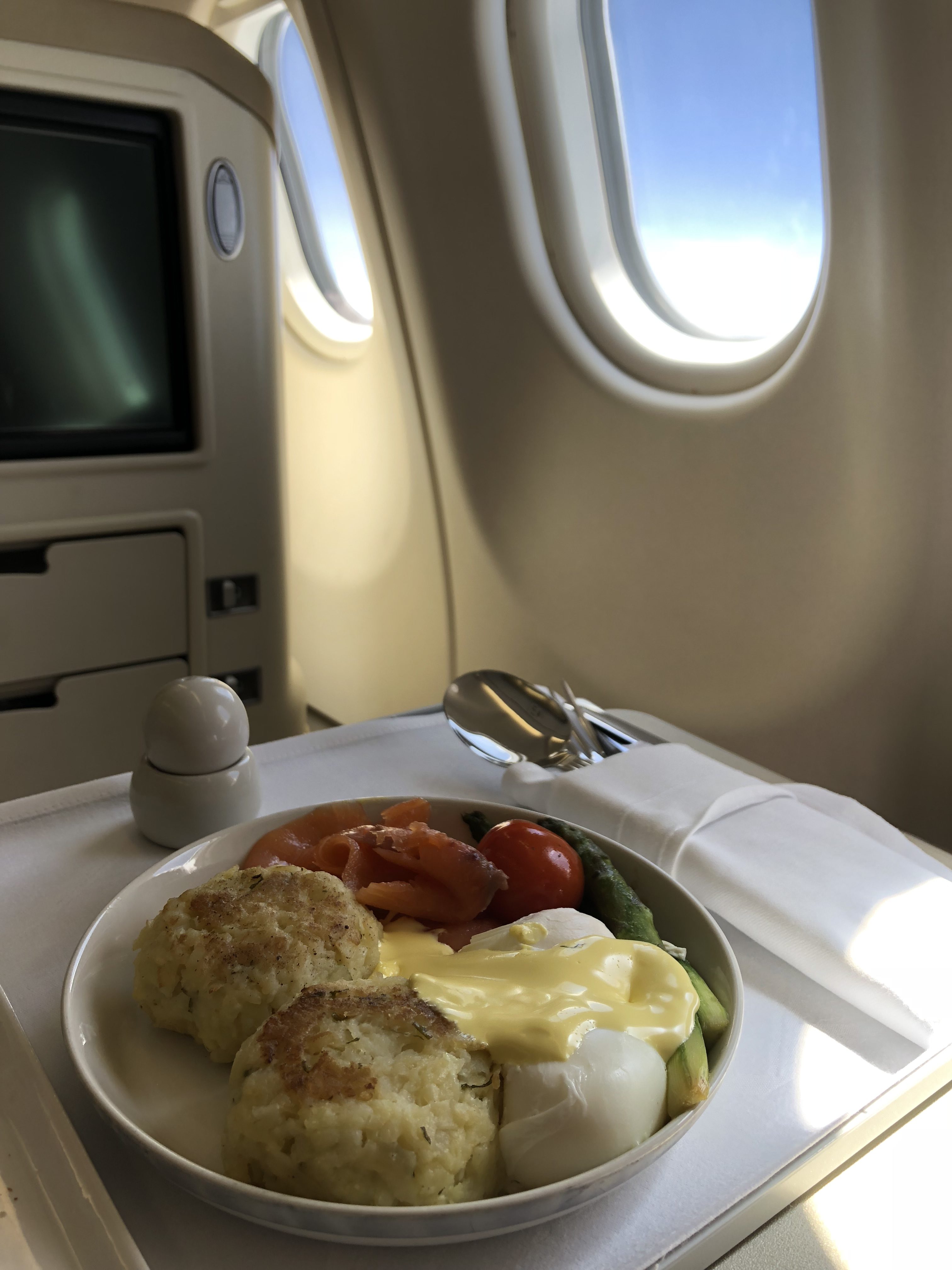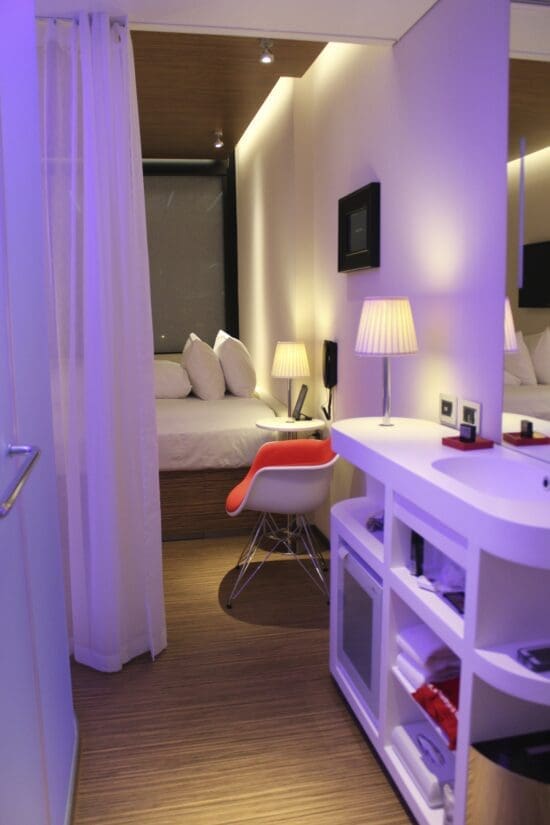
Love hip, tech-savvy, next-gen-style hotels that meet your budget and aesthetic needs? Well, your options are expanding thanks to a mix of entrepreneurial hoteliers like Michael Levie and Marco Nussbaum (see below) and one multinational corporation – Marriott International.
“We’ve got to be cool!” Bill Marriott is quoted as saying in last week’s profile by the Wall Street Journal, pointing out that Millennials will in four years amount to 60% of Marriott’s customer base. “All of us old folks are moving on,” the 82-year-old industry icon told the Journal.
The Journal piece reminded me that Marriott’s close to opening its first Moxy, the chic, low-cost brand that it’s cooking up with a Nordic hospitality firm related to affordable furniture giant Ikea. According to the piece I’d penned about Moxy for USA TODAY last year, the companies’ goal is to have 150 hotels in 10 years. The Journal described the Moxy formula: “small, low-cost rooms with grab-and-go food and the feel of a Silicon Valley startup.”

I would add that the formula hinges on quite a bit more: free, quality Wi-Fi; screens on various walls; a mobile check-in option; edgy, sophisticated design for the public spaces that encourages social interaction; a stylish room concept that cleverly maximizes use of the minimal space; a lively bar – and plenty of eye candy that encourages Millennials and those of us with a Millennial mindset to snap and share on Facebook, Instagram, Twitter, etc.
TWITTER: Join Barb on Twitter for news
But the global race for Millennials – an age group that’s rapidly becoming a force in the high-stakes world of business travel – also involves tiny brands known for their non-traditional appeal and savvy use of the Internet. Two companies that come to mind:
CitizenM: Amsterdam-based company headed by CEO Michael Levie goes after “global nomads” who tend to work in advertising, fashion, publishing and other creative businesses but don’t have five-star budgets…yet. The company operates hotels in Europe including in London and at the Schipol airport, but a couple of months ago opened its first hotel in the USA in the high-profile Times Square neighborhood. It recently signed a deal to grow in Asia. The citizenM team relies heavily on personalized interaction on social media, which at times will mean that a citizenM hotel staffer will personally thank a customer for a Tweet and buy them a cocktail or another treat.

Prizeotel: This German company literally just opened its second hotel in Bremen, Germany, but the CEO – Cornell University hotel school alum Marco Nussbaum – is already eyeing new markets in Europe (where Moxy expects to grow) as well as New York (Brooklyn and Times Square). The formula relies heavily on style, thanks to a partnership with international designer Karim Rashid. The name, by the way, mixes “price” and “hotel.” Nussbaum thinks the Internet is one of the factors that will even out the competition for the consumer with big brands. One example: The hotels don’t rely on traditional salespeople; instead, employees specialize in develop blog content that informs customers – and also gets the Prizeotel name buzzing on the Internet. Another example: I “met” Nussbaum via Twitter, which to me speaks volumes about how senior management views social marketing.
There are some in the business who think that the assumed “big brand” advantages such as massive distribution systems, giant marketing budgets and costly loyalty rewards programs could be challenged in the future by younger travelers’ heightened interest in booking interesting hotels they find through Internet searches and friends’ social-network recommendations. This brave, new world, of course, also includes Airbnb. Recently, an Airbnb executive told me that the short-term-rental giant is the early stages of exploring how it will go after business travelers.
Readers: What say you about this edgy new lodging category?









